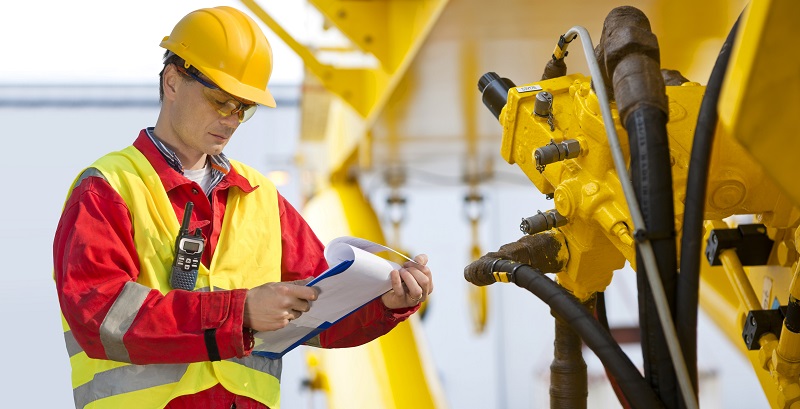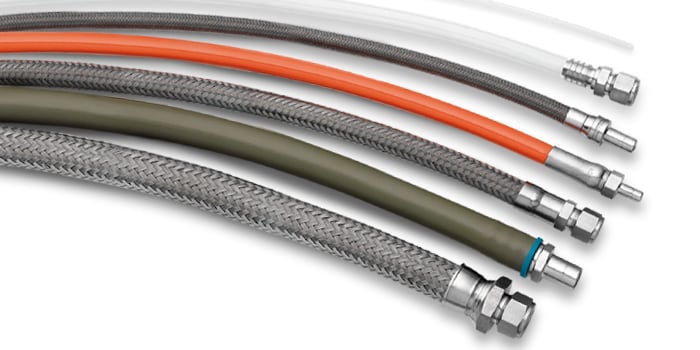Keeping your hoses in good condition is an essential part of any industrial operation. A regular inspection and testing of hoses can help to ensure that they remain safe and reliable in use. In this blog post, we’ll look at the importance of hose inspections, what they involve, and how they help to keep your operations running smoothly. We’ll also discuss the tests used to evaluate hoses, and how they can help you identify any potential problems.
Why Should You Inspect Your Hoses?
Industrial hoses are a crucial component of many machinery systems, and they need to be regularly inspected to ensure the highest levels of performance and safety. Regular hose inspections can help to identify any potential problems before they occur and can also help to maintain good quality industrial pipe expansion joints. The importance of regularly inspecting your hoses cannot be overstated – it is essential to ensuring that your equipment is safe, reliable, and efficient.
Hose inspections help to identify any wear and tear, cracks, or other damage that could cause problems for your machinery. In addition, inspecting your hoses allows you to detect any potential leaks or blockages that could reduce the efficiency of your system. If a hose inspection identifies an issue, it can then be addressed in a timely manner to avoid any further damage or disruption.
Regular inspections also give you the opportunity to check the condition of any industrial pipe expansion joints, which are essential components in many systems. Good quality industrial pipe expansion joints are vital for ensuring the optimal performance and longevity of your machinery. A hose inspection will allow you to identify any damaged or faulty expansion joints so that they can be replaced or repaired as soon as possible.
Finally, regular hose inspections can help to ensure that your system is operating as efficiently as possible, thus saving you money on energy costs. By identifying any issues early, you can prevent them from becoming more costly problems in the future.
In summary, there are numerous benefits to inspecting your hoses on a regular basis. Not only does this help to identify any potential problems early on, but it also ensures that any industrial pipe expansion joints remain in good condition for optimal performance and efficiency. So, make sure to inspect your hoses regularly for optimal performance and safety.
When Should You Inspect Your Hoses?
It is important to inspect your hoses regularly to maintain their integrity and ensure good quality industrial pipe expansion joints. Depending on the environment in which the hoses are used, different inspection intervals should be observed. If the hoses are constantly exposed to hazardous elements such as extreme temperatures, corrosive materials, and abrasive particles, frequent inspections are necessary. Hoses that are exposed to movement or vibration should also be inspected more frequently. If the hoses are used in an environment where the temperature changes rapidly, or if the hoses are exposed to varying degrees of pressure or tension, they should be inspected at least every six months. Even if the hoses have a long lifespan, it is important to check them on a regular basis to guarantee their longevity and performance.
How Often Should You Inspect Your Hoses?
Inspecting your hoses regularly is the best way to ensure they are safe and functioning properly. It is recommended that you inspect your hoses every six months, depending on how often they are used. If your hoses are used frequently, then it is important to inspect them more often. Also, depending on what type of environment your hoses are exposed to, you may need to inspect them more frequently. Hoses used in areas with extreme temperatures or exposure to chemicals or abrasive materials may need to be inspected more often than those in more benign environments.
Inspecting your hoses is a simple process that does not require any special tools. You should look for signs of wear and tear, cracks, holes, bulges, or any other signs of damage. In addition, you should also check the connections and make sure they are secure. Finally, you should check the pressure rating of the hoses to make sure they are suitable for the job.
If you discover any signs of damage or wear and tear during your inspection, then it is best to replace the hose right away. This will help prevent any further damage or failure, ensuring the safety of your employees and equipment. Taking regular inspections of your hoses is an important part of maintaining a safe work environment.
What Are the Benefits of Regular Hose Inspections?
Regular inspections of hoses are essential for any industrial setting. By inspecting hoses on a regular basis, you can identify potential problems before they cause damage or disruption to your operations. Here are just a few of the benefits that regular hose inspections can provide:
- Improved Safety: By inspecting and testing hoses regularly, it allows you to identify any issues before they become a safety hazard. This can help reduce the risk of accidents in the workplace and ensure the safety of your employees and customers.
- Increased Reliability: Regular inspections and testing of hoses can help to ensure that they are functioning properly and performing as expected. This can help prevent downtime due to broken hoses, as well as helping to extend the lifespan of your hoses.
- Reduced Costs: Regular inspections and testing can help to reduce the cost of repairs or replacements, as any issues can be identified and rectified early on. This also helps to reduce the risk of expensive downtime due to a malfunctioning hose.
- Improved Productivity: Regular inspections and testing can help to keep your production line running smoothly, which can help to increase productivity. This means that your business can produce more in less time, which can help to boost profits.
In conclusion, regular hose inspections and testing can offer numerous benefits for any business. By taking the time to inspect and test your hoses on a regular basis, you can ensure that they are working as expected and identify any issues before they become a problem. This can help to improve safety, reliability, reduce costs, and boost productivity, making it an essential practice for any business.





